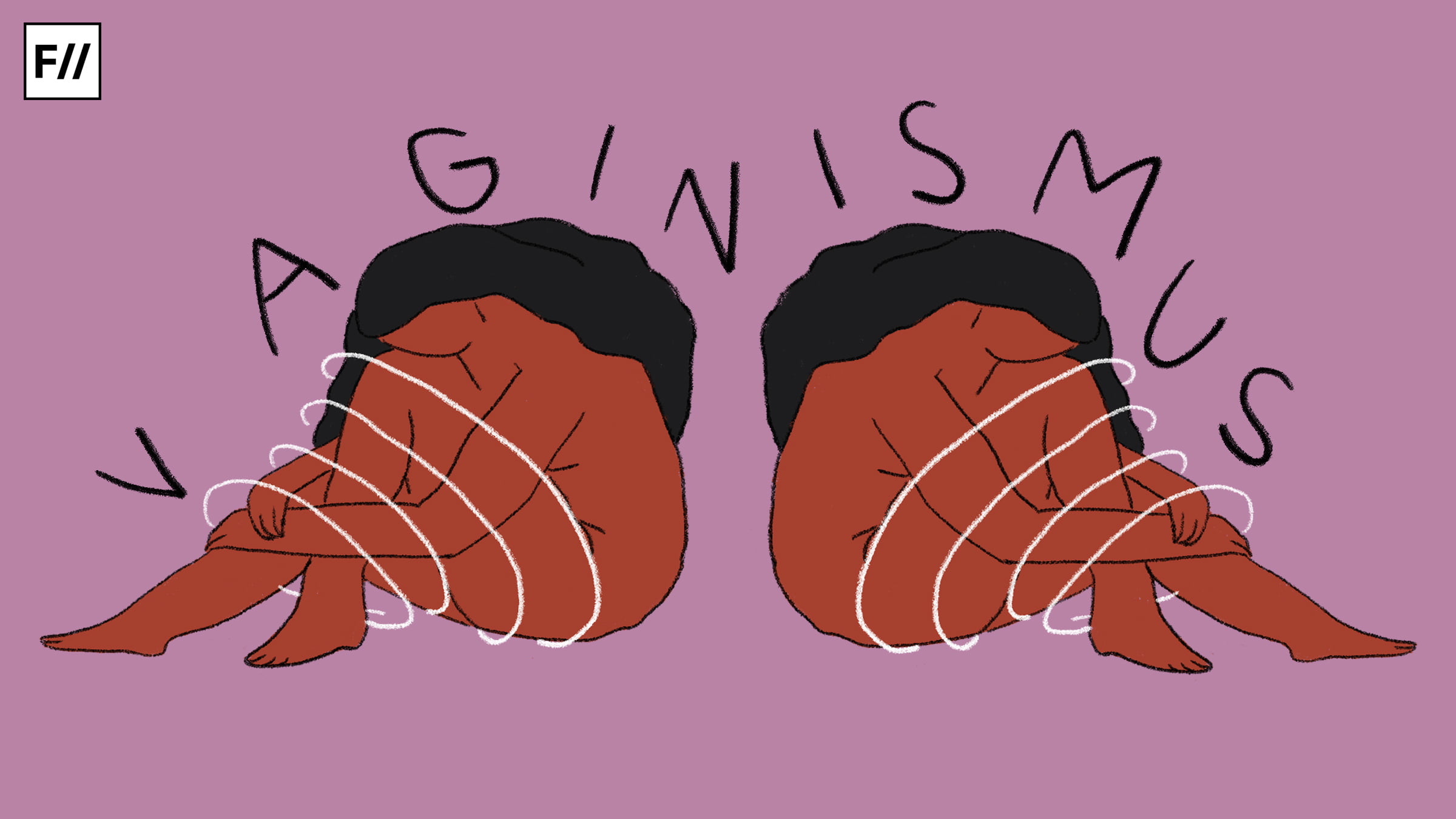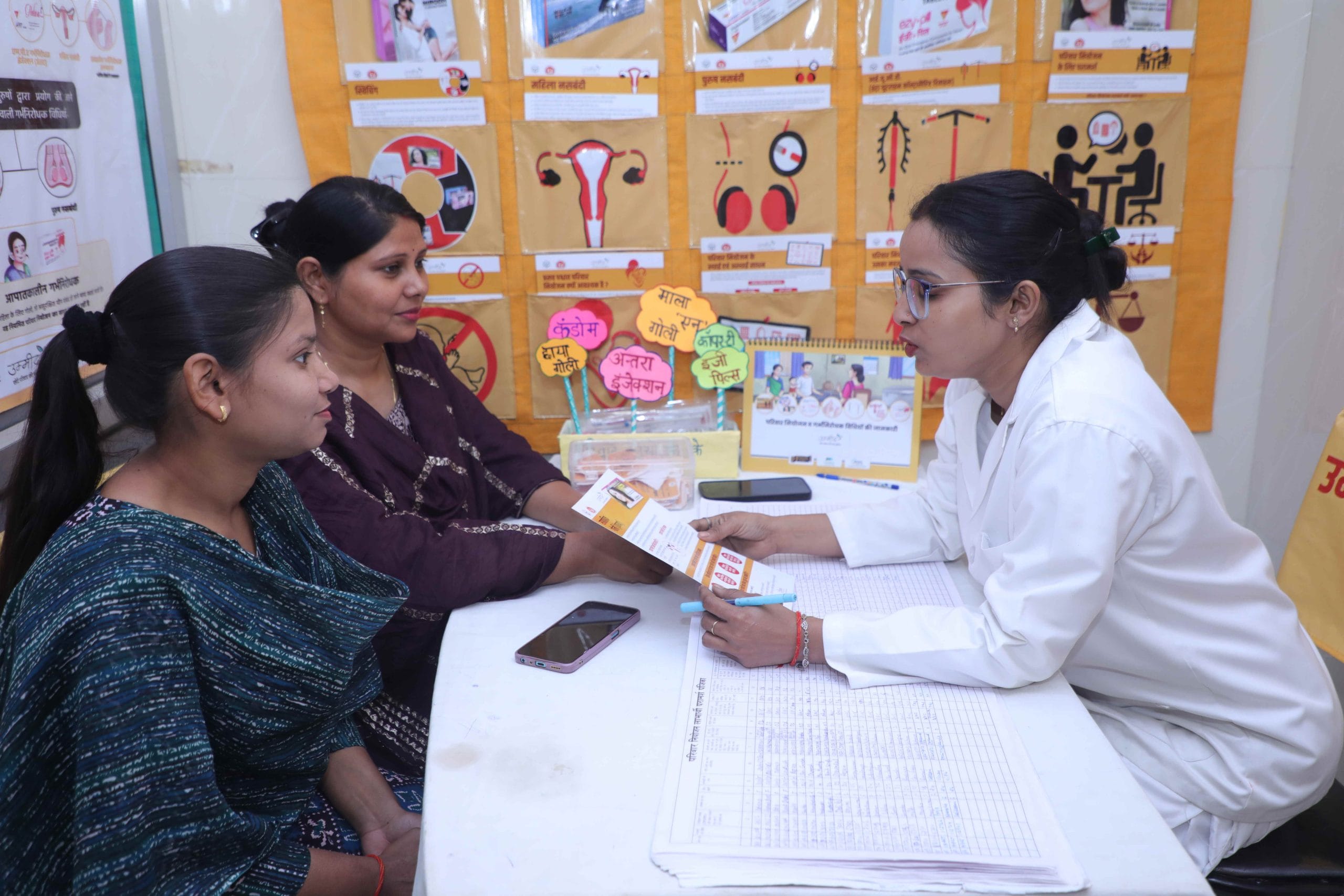Sometimes sex is difficult.
Sometimes it’s scary.
Sometimes it’s painful.
Sometimes it feels like even though it’s supposed to be natural – it just isn’t working out.
Sometimes even penetration by a tampon or menstrual cup can seem impossible.
If you’ve ever had to google why you’re tighter than usual, or why inserting your tampon feels like it’s hitting a wall – chances are you could be suffering from Vaginismus.
Vaginismus is the involuntary tensing or contracting of muscles around the vagina. These unintentional muscle spasms occur when something — a penis, finger, tampon, menstrual cup or medical instrument — attempts to penetrate the vagina.
Also read: “The Sex Which Is Not One”: Vaginismus And The Construction Of Female Sexuality
There are primarily two types of Vaginismus:
Primary Vaginismus
Primary vaginismus is when a woman or a person with vagina has had pain every time something entered their vagina, including a penis (called penetrative sex), and when they have never been able to insert anything into her vagina.
The cause for primary vaginismus is trauma. This trauma can be due to any one of the following broad categories:
- Sexual abuse in the past
- Belief that sex is bad, dirty or immoral.
- Belief that sex is painful which is reinforced by violent rape scenes in movies, or young girls overhearing discussions of how the first night was painful.
- Painful vaginal examination by a doctor
- Any physical trauma related to the vagina in the past
Secondary Vaginismus
Secondary vaginismus is when a woman or person with vagina has had sex without pain before, but then it becomes difficult or impossible. It’s also called acquired vaginismus. This can be caused by a yeast infection, child birth, psychological causes or a combination of causes.
Symptoms of Vaginismus
- Involuntary tightening of the vaginal muscles
- Fear of vaginal penetration
- Decreased sexual desire related to penetration
- Burning or stinging pain
Pain due to vaginismus can range from mild to severe, and is often accompanied by emotional distress. Vaginismus does not mean that a person cannot experience sexual arousal. But the idea of having penetrative sex can sometimes cause anxiety symptoms leading to an extreme aversion to sex.
Despite the misery brought on by the condition, many Indian women and non-binary people hesitate to seek treatment for it or even discuss it with their intimate partners due to the social taboo on talking about sex. Sexual abuse in childhood is often the root cause of vaginismus in Indian women and non-binary people, according to medical experts and therapists. Yet, thanks to our culture of silence and shaming, many people do not come out and speak about this.
Also read: Destigmatising Painful Sex Is As Important As Normalising Enjoying Or Not Enjoying Sex
Vaginismus can result in feelings of inadequacy, shame, and low self-esteem in women and non-binary people because they internalise the guilt of not being able to ‘provide’ sex. Another issue that needs to be addressed is that many Indian women view sex as an act of ‘giving’ pleasure rather than receiving it, and they tend to neglect their own needs. These notions contribute to women being at odds with their own body.
The point with discussing mental health and sexual pain is that even though vaginismus is rarely considered a serious condition, it still haunts the healthy lifestyle of a person.
In a patriarchal society, penetrative sex is considered as the only kind of sex which is acceptable. Female eroticism involves more than just penetration and there are multiple ways through which women and non-binary people could achieve orgasms.
If you have vaginismus, it doesn’t mean that you’ll stop enjoying sexual activities altogether. Those who have the condition can still feel and crave sexual pleasure and have orgasms. And this can happen through oral sex, massages, clitorial stimulation or masturbation. Foreplay is key to make your partner feel comfortable and loved and relax their vaginal muscles.
Treatment for Vaginismus
- sex therapy and counselling
- vaginal dilators
- physical therapy
The good news is that vaginismus can usually be treated. In programs & researches around the world, the success rate of vaginismus treatments have been close to 100%. The treatment is most often provided by mental health professionals experienced in sexual therapy (these could be psychiatrists or counsellors). Sexologists also provide treatment for vaginismus.
While on one hand, young adults are exposed to a culture that is increasingly becoming sex-positive and encouraging people to explore sexualities, on the other, people might never open up due to stigma and continue to have painful sex for years to be a part of the “in group”. A healthy conversation in a safe space could really help that stop.
Having vaginismus is just like having any other medical condition. The only difference is not many people talk about vaginismus. Not being able to have sex can be emotionally exhausting and mentally disturbing. But it’s time we understand, this is not our fault. Guilt is the most common companion of vaginismus. It impacts the mental health of the woman & harmony of the relationship, often leading to separation. We need to be open to conversation and understand our body and needs better.
Also read: The Crowdsourced List Of Gynaecologists We Trust
Featured Image: Shreya Tingal for Feminism in India
About the author(s)
Feminism In India is an award-winning digital intersectional feminist media organisation to learn, educate and develop a feminist sensibility and unravel the F-word among the youth in India.





HELLO,
PLEASE CHECK OUT MY BOOK:
https://www.amazon.in/Vaginismus-Book-Pain-free-Love-ebook/dp/B091V615VX/ref=sr_1_1?dchild=1&keywords=JULIA+REEVE&qid=1626873270&sr=8-1
A SELF HELP BOOK FOR WOMEN SUFFERERS OF VAGINSIMUS
Vaginismus of course 🙂